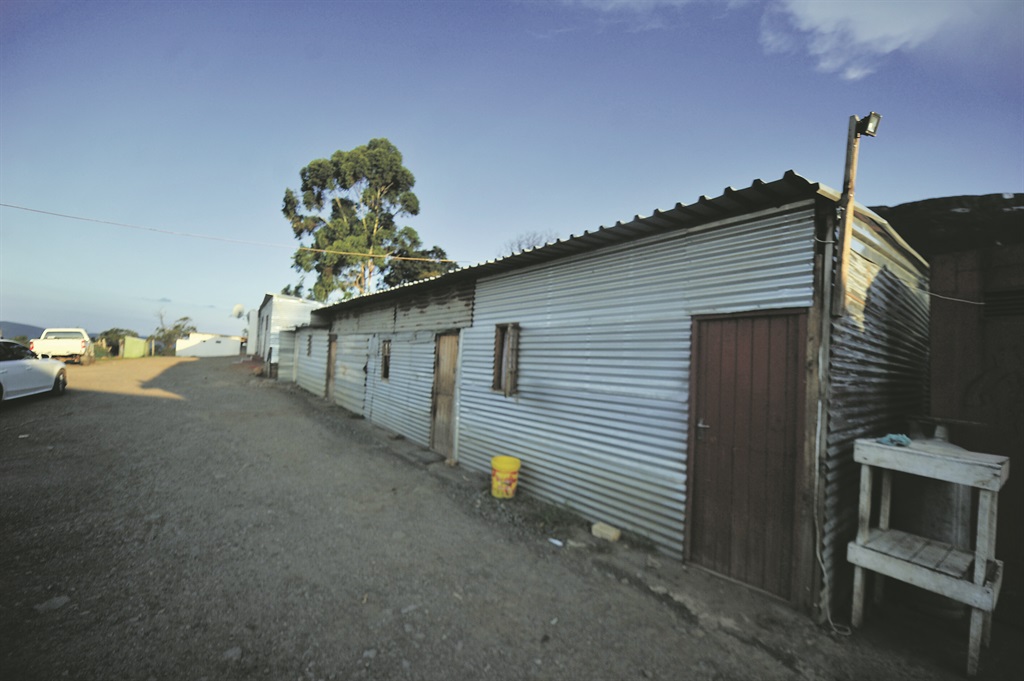
A former Seven Angels Ministry leader has broken his silence about how a church once based on Christian doctrines began fleecing its congregants under a leader who called himself “today’s Moses”.
Mlandeli Mnyamana told City Press that he joined the church in the 1980s.
The organisation’s leaders allegedly killed five police officers at the Ngcobo police station late last month.
They allegedly kept a string of “wives”, some as young as 12, who felt honoured when it was their turn to service their sexual needs.
Mnyamana left his own church to join Siphiwo Mancoba, the founder of the Angel Ministry – an acronym for All Nations God’s Evangelical Lamp Ministry – the name which convinced Mancoba’s sons that they were real angels.
“I was one of the first people to join him in his new ministry,” he said.
“I left home to join the ministry, packed my bags and left my home because I disagreed with my father over joining the church.”
Mnyamana was impressed by the “miracles” that took place there and the “church grew in leaps and bounds”.
“As the church grew, so did the ego of Mancoba. He became big and soon enough the first cracks began to show,” he said.
Mancoba used to record tapes of his teachings, which would be distributed among church elders.
Armed with these, he and others would go on “crusades”, preaching from village to village and taking members “out of their own churches and bringing them home to Mancoba”.
“But one day, on my return, I noted something was different in the ministry; the congregants were talking of the ‘new Moses’,” he said.
“The concept took centre stage and it became apparent that the new Moses was Siphiwo Mancoba,” he said.
“He ascended as the new Moses who was responsible for the miracles. I became very uncomfortable; specifically because I was one of the people responsible for bringing new repentants to the ministry.”
When he asked what was going on, he was met with a “thick air of arrogance”.
When younger men and boys were promoted to leadership positions, reporting directly to Mancoba, they too took on an “air of authority that suggested that they had special powers and could do as they pleased”.
One day, he overheard one of the young men discussing what Mancoba was paying him.
“I was absolutely shocked, mainly because I was not aware that there were members who were getting paid money to be part of the ministry,” he said.
“In all the years I’d been part of the ministry, I got less than R100 so I could buy a few things as I travelled from village to village.”
The money they were paid, he learnt, was coming from new recruits.
“Initially, I naively believed that we had been given these humble stipends from the small donations made by people who made free-will offerings,” he said.
“It became clear, as the members grew, that there was a source of income we did not know about. The Mancobas’ lifestyle was changing, the lifestyles of those in the inner circle changed along with theirs.”
As new members began moving to the compound, their wealth grew.
“It shocked me to learn that there were people who were resigning from their jobs en masse. We were supposed to bring people to Christ, not to take their wealth from them,” Mnyamana said.
“These people were selling their properties, cashing in their pensions so they could donate their worldly acquisitions to be closer to God.
"They believed that Mancoba and [ministry co-founder Ndumiso] Jali were the solution to their problems. We were pirates in a sea full of desperate people.”
While the new recruits were “living humble lives inside the compound”, the church leaders were “living a cushy life at their expense”.
He said the lifestyle change and the money the inner circle was paid changed his views about the ministry.
“After more than 10 years of going around the villages of the Transkei, preaching Christ to people, I started doubting my involvement in the ministry – we were hypocrites. We became robbers of desperate people.”
Mnyamana left. He subsequently discovered how the “miracles” that had attracted him to the church in the first place were being performed.
He claimed those in Mancoba’s inner circle were buying medication from nurses in town, which was then “discreetly dispensed to ensure that those with critical ailments could have relief from pain”.
Mnyamana alleged that local police were paid off to ensure that the cult was never fully investigated.
He said he received calls, many years after he left, from those who remained.
After the church fell into the hands of Mancoba’s sons, their congregants began calling them “my Lord” and “my God”.
“They abolished the Bible and said the angels are greater than Bible scripts,” he said.
Provincial police spokesperson Captain Khaya Tonjeni said that at the time the brothers allegedly orchestrated the attack on the police station in Ngcobo, their organisation had begun to fall apart.
“When I spoke to Banele, I discovered that he had an antagonistic relationship with his elder brother Thandile,” Tonjeni said of two of the “angels”.
“Even though the cult was divided into departments to accommodate each of them, Thandile wanted his birthright, to be the leader.”
Thandile and two of his brothers were killed in a shoot-out with police on Friday, February 23, two days after the five police officers were murdered.
“They had decided to go their separate ways; each one with his own branch and to keep the matriarch, [their mother] Nombongo, as the leader of the main church.”




 Publications
Publications
 Partners
Partners








